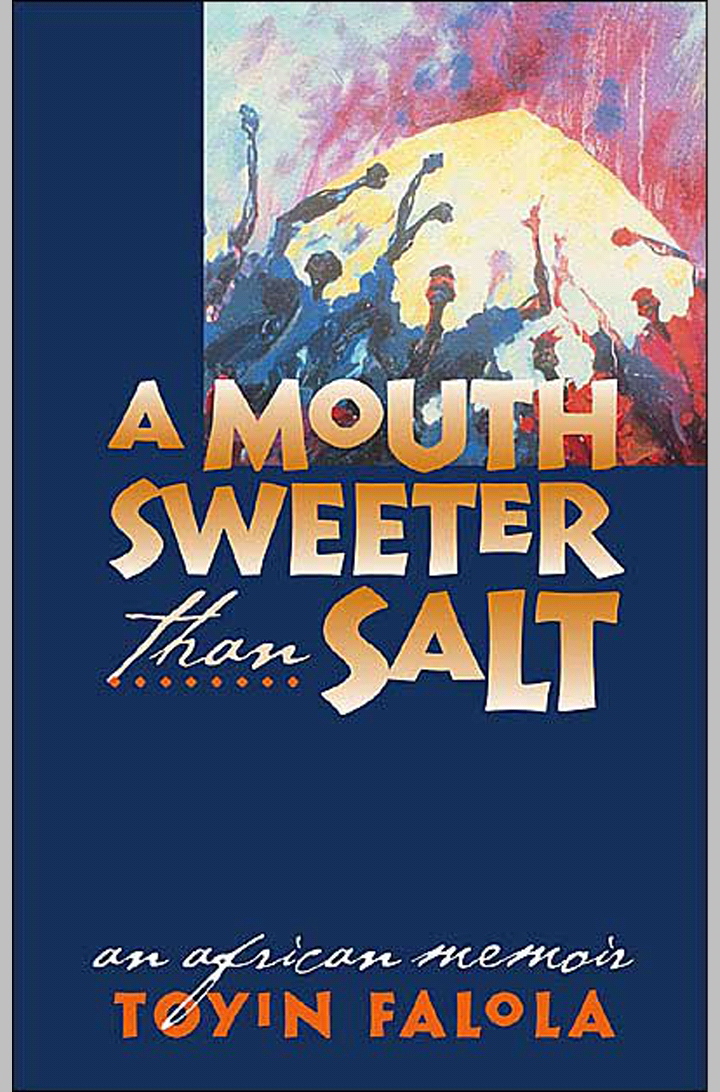My Review of Toyin Falola's A Mouth Sweeter than Salt: An African Memoir, published in 2004.
I read Toyin Falola's A Mouth Sweeter than Salt between Saturday 22nd August and 23rd August, 2020. The book gives full rein to anyone who is interested in having an intimate view of Falola's childhood experiences in Ìbàdàn. The events recounted in the book cover the first thirteen years of the author and profoundly spread across places such as Agbọ́kọjó, Ode Aje and Elepo, all in the current Ọ̀yọ́ state. These experiences as Falola alluringly presents them will easily have special resonance with every Yorùbá that had their formative years steeped in Yorùbá mores, particularly patriarchy and polygamy.
Although the only child of his mother for his father who died barely five months after his birth, his early life was moulded and mothered by different Mamas. Besides the zillion filial duties he performed for them in return for handsome rewards in cash and kind, the talk that curiosity killed the cat almost held true for him. But his own cat did not died; It was rather lost. This curiosity earned him pseudonym, emèrè, which became albatross around his neck throughout his time in Agbọ́kọjó. It all started with his fervent fascination with the train which often travelled along his home. His fascination grew more force enough to push him to know the origin and destination of this 'snake'. With unyielding bravery stemmed from his Mesiogo trait, he entered the train and traveled along. However, he was unluckily evicted in Ìlọrin, hundreds of miles away from his home. In Ìlọrin, his life detoured and he was haplessly busied with one of the devious means to eke out a living. It was here that he learnt that the mouth is much sweeter than salt.
To give the reader orgasmic experience, Falola draws heavily on Yorùbá metaphors and witticism to weave his story. The result is this masterpiece. The chatty style he employs to present his stories is sufficient to take the readers by the hands on a hearty voyage around his pastoral upbringing in Ìbàdàn. It is a profound book that will be of high interest even to readers who are non-Yoruba because it offers appreciable insights into the Yorùbá conceptualisation of realities such as àbíkú, emèrè, Ìbejì, ogún owó, ìyàwó, osomalo and the Mesiogo philosophy of the Ìbàdàn people.
When you meet someone from Ìbàdàn, do not hastily form alliance. Do not either bank on their yes or no. Either only thrives in the moment it was said. No true son or daughter of Ìbàdàn will ever budge in the heat of verbal war. One's mouth is one's lawyer. They will never retreat in order to prepare for the war in another day. It is either today or never. In Ìbàdàn, bravery is essence of living, cowardice is a smudge. The news of war will never bother Ìbàdàn people; it will rather buoy them. Riots in all compounds is the disease of Ìbàdàn. This is the Mesiogo philosophy aptly discussed by Falola as a core trait in every fibre of being of sons and daughters of Ìbàdàn. It is their armour, fervour and glamour
Additionally, Falola does not present stories all about himself. Evident in the book are the struggles for life before Nigeria's independence, her infantile democracy charred by corruption and injustice that necessitated the first military coup, and the cultural excellence of Ìbàdàn. The background of the author as a foremost historian further bestows the book with additional political and historical significance and credibility. He offers fresh insights into the prevailing economic and political crisis of the early 1960s, particularly the travails of the powerless in the iron hand of the powerful.
This is an highly remarkable book that will both appeal to those seeking first hand facts about the background of this eminent scholar of African history and those who crave the unfettered pleasure of reading memoirs. Throughout the book, Falola gracefully emerges as someone who truly " saw more than enough, heard more than necessary, and listened to an excess of words."



Comments
Post a Comment